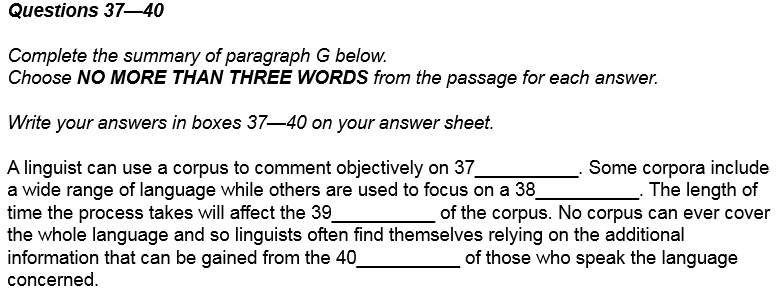雅思阅读考试注意事项
在开始雅思备考时,知己知彼失分重要,对于雅思阅读来说,了解雅思阅读考试的注意事项很重要,小编给大家带来了雅思阅读考试注意事项,希望能够帮助到大家,下面小编就和大家分享,来欣赏一下吧。
雅思阅读考试注意事项
注意:雅思阅读评分标准有a类g类之分(对应雅思阅读a类g类考试的不同),听力则无此区分,切记。
雅思阅读考试注意事项之1.一定要听从考官指挥
没有让你打开阅读试卷前请淡定!!!阅读和写作的考试是没有固定的开始时间,每个教室根据考官分发试卷完毕的时间自行宣布开始。
雅思阅读考试注意事项2.保持自己的节奏
阅读时间考官会在还剩40分钟、20分钟、10分钟时提醒大家,同样,考官会准时叫停,规矩和听力一样的。童鞋们要保持淡定的心态,不要因为报时间就慌了,按自己的节奏做,最后如果来不及也不要有空白的地方哦。做不完全选C神马的如果一个也没对,这人品小管家替你捉急。阅读时直接将答案写在答题纸上,没有设定专门誊写答案的时间。
雅思阅读考试注意事项3.不要激动的翻过答题纸修改
如果突然运气爆棚,在阅读的文章中看到了某个词正好是你听力中不会拼的,请不要很激动地翻过答题纸修改,因为这是不允许的。可以见机行事淡定地修改,但不要为了听力的一分而浪费太多做阅读的紧迫时间。
雅思阅读考试注意事项4.字数限制
仔细阅读相关指示和要求,记下每个答案的字数限制
雅思阅读考试注意事项5.替换表达
一定要留意文章中的替换表达,有些题目和答案的意思其实在文章中出现过,只不过是另一种说法!
雅思阅读模拟试题精选
How to increase sales
Published online: Nov 9th 2006
From The Economist print edition
How shops can exploit people's herd mentality to increase sales
1. A TRIP to the supermarket may not seem like an exercise in psychological
warfare—but it is. Shopkeepers know that filling a store with the aroma of
freshly baked bread makes people feel hungry and persuades them to buy more food
than they had intended. Stocking the most expensive products at eye level makes
them sell faster than cheaper but less visible competitors. Now researchers are
investigating how “swarm intelligence” (that is, how ants, bees or any social
animal, including humans, behave in a crowd) can be used to influence what
people buy.
2. At a recent conference on the simulation of adaptive behaviour in Rome,
Zeeshan-ul-hassan Usmani, a computer scientist from the Florida Institute of
Technology, described a new way to increase impulse buying using this
phenomenon. Supermarkets already encourage shoppers to buy things they did not
realise they wanted: for instance, by placing everyday items such as milk and
eggs at the back of the store, forcing shoppers to walk past other tempting
goods to reach them. Mr Usmani and Ronaldo Menezes, also of the Florida
Institute of Technology, set out to enhance this tendency to buy more by playing
on the herd instinct. The idea is that, if a certain product is seen to be
popular, shoppers are likely to choose it too. The challenge is to keep
customers informed about what others are buying.
3. Enter smart-cart technology. In Mr Usmani's supermarket every product
has a radio frequency identification tag, a sort of barcode that uses radio
waves to transmit information, and every trolley has a scanner that reads this
information and relays it to a central computer. As a customer walks past a
shelf of goods, a screen on the shelf tells him how many people currently in the
shop have chosen that particular product. If the number is high, he is more
likely to select it too.
4. Mr Usmani's “swarm-moves” model appeals to supermarkets because it
increases sales without the need to give people discounts. And it gives shoppers
the satisfaction of knowing that they bought the “right” product—that is, the
one everyone else bought. The model has not yet been tested widely in the real
world, mainly because radio frequency identification technology is new and has
only been installed experimentally in some supermarkets. But Mr Usmani says that
both Wal-Mart in America and Tesco in Britain are interested in his work, and
testing will get under way in the spring.
5. Another recent study on the power of social influence indicates that
sales could, indeed, be boosted in this way. Matthew Salganik of Columbia
University in New York and his colleagues have described creating an artificial
music market in which some 14,000 people downloaded previously unknown songs.
The researchers found that when people could see the songs ranked by how many
times they had been downloaded, they followed the crowd. When the songs were not
ordered by rank, but the number of times they had been downloaded was displayed,
the effect of social influence was still there but was less pronounced. People
thus follow the herd when it is easy for them to do so.
6. In Japan a chain of convenience shops called RanKing RanQueen has been
ordering its products according to sales data from department stores and
research companies. The shops sell only the most popular items in each product
category, and the rankings are updated weekly. Icosystem, a company in
Cambridge, Massachusetts, also aims to exploit knowledge of social networking to
improve sales.
7. And the psychology that works in physical stores is just as potent on
the internet. Online retailers such as Amazon are adept at telling shoppers
which products are popular with like-minded consumers. Even in the privacy of
your home, you can still be part of the swarm. (644 words)
雅思阅读模拟试题精选
How to increase sales
Published online: Nov 9th 2006
From The Economist print edition
How shops can exploit people's herd mentality to increase sales
1. A TRIP to the supermarket may not seem like an exercise in psychological
warfare—but it is. Shopkeepers know that filling a store with the aroma of
freshly baked bread makes people feel hungry and persuades them to buy more food
than they had intended. Stocking the most expensive products at eye level makes
them sell faster than cheaper but less visible competitors. Now researchers are
investigating how “swarm intelligence” (that is, how ants, bees or any social
animal, including humans, behave in a crowd) can be used to influence what
people buy.
2. At a recent conference on the simulation of adaptive behaviour in Rome,
Zeeshan-ul-hassan Usmani, a computer scientist from the Florida Institute of
Technology, described a new way to increase impulse buying using this
phenomenon. Supermarkets already encourage shoppers to buy things they did not
realise they wanted: for instance, by placing everyday items such as milk and
eggs at the back of the store, forcing shoppers to walk past other tempting
goods to reach them. Mr Usmani and Ronaldo Menezes, also of the Florida
Institute of Technology, set out to enhance this tendency to buy more by playing
on the herd instinct. The idea is that, if a certain product is seen to be
popular, shoppers are likely to choose it too. The challenge is to keep
customers informed about what others are buying.
3. Enter smart-cart technology. In Mr Usmani's supermarket every product
has a radio frequency identification tag, a sort of barcode that uses radio
waves to transmit information, and every trolley has a scanner that reads this
information and relays it to a central computer. As a customer walks past a
shelf of goods, a screen on the shelf tells him how many people currently in the
shop have chosen that particular product. If the number is high, he is more
likely to select it too.
4. Mr Usmani's “swarm-moves” model appeals to supermarkets because it
increases sales without the need to give people discounts. And it gives shoppers
the satisfaction of knowing that they bought the “right” product—that is, the
one everyone else bought. The model has not yet been tested widely in the real
world, mainly because radio frequency identification technology is new and has
only been installed experimentally in some supermarkets. But Mr Usmani says that
both Wal-Mart in America and Tesco in Britain are interested in his work, and
testing will get under way in the spring.
5. Another recent study on the power of social influence indicates that
sales could, indeed, be boosted in this way. Matthew Salganik of Columbia
University in New York and his colleagues have described creating an artificial
music market in which some 14,000 people downloaded previously unknown songs.
The researchers found that when people could see the songs ranked by how many
times they had been downloaded, they followed the crowd. When the songs were not
ordered by rank, but the number of times they had been downloaded was displayed,
the effect of social influence was still there but was less pronounced. People
thus follow the herd when it is easy for them to do so.
6. In Japan a chain of convenience shops called RanKing RanQueen has been
ordering its products according to sales data from department stores and
research companies. The shops sell only the most popular items in each product
category, and the rankings are updated weekly. Icosystem, a company in
Cambridge, Massachusetts, also aims to exploit knowledge of social networking to
improve sales.
7. And the psychology that works in physical stores is just as potent on
the internet. Online retailers such as Amazon are adept at telling shoppers
which products are popular with like-minded consumers. Even in the privacy of
your home, you can still be part of the swarm.
(644 words)
Questions 1-6
Complete the sentences below with words taken from the reading passage. Use
NO MORE THAN THREE WORDS for each answer.
1. Shopowners realize that the smell of _______________ can increase sales
of food products.
2. In shops, products shelved at a more visible level sell better even if
they are more _______________.
3. According to Mr. Usmani, with the use of “swarm intelligence”
phenomenon, a new method can be applied to encourage _______________.
4. On the way to everyday items at the back of the store, shoppers might be
tempted to buy _______________.
5. If the number of buyers shown on the _______________ is high, other
customers tend to follow them.
6. Using the “swarm-moves” model, shopowners do not have to give customers
_______________ to increase sales.
Questions 7-12
Do the following statements agree with the information given in the reading
passage? For questions 7-12 write
YES if the statement agrees with the information
NO if the statement contraicts the information
NOT GIVEN if there is no information on this in the passage
7. Radio frequency identification technology has been installed
experimentally in big supermarkets like Wal-Mart.
8. People tend to download more unknown songs than songs they are familiar
with.
9. Songs ranked high by the number of times being downloaded are favored by
customers.
10. People follow the others to the same extent whether it is convenient or
not.
11. Items sold in some Japanese stores are simply chosen according to the
sales data of other shops.
12. Swarm intelligence can also be observed in everyday life.
Answer keys:
1. 答案:(freshly baked) bread. (第1段第2行:Shoppers know that filling a store
with the aroma of freshly baked bread makes people feel hungry and persuades
them to buy more food than they intended.)
2. 答案:expensive. (第1段第4行: Stocking the most expensive products at eye level
makes them sell faster than cheaper but less visible competitors.)
3. 答案:impulse buying. (第2段第1句:At a recent conference on the simulation of
adaptive behaviour in Rome, Zeeshan-ul-hassan Usmani, a computer scientist from
the Florida Institute of Technology, described a new way to increase impulse
buying using this phenomenon.)
4. 答案:other (tempting) goods/things/products. (第2段第2句:Supermarkets already
encourage shoppers to buy things they did not realise they wanted: for instance,
by placing everyday items such as milk and eggs at the back of the store,
forcing shoppers to walk past other tempting goods to reach them.)
5. 答案:screen. (第3段第4行:As a customer walks past a shelf of goods, a screen
on the shelf tells him how many people currently in the shop have chosen that
particular product. If the number is high, he is more likely to select it
too.)
6. 答案:discounts. (第4段第第1句:Mr Usmani‘s “swarm-moves” model appeals to
supermarkets because it increases sales without the need to give people
discounts.)
7. 答案:NO. (第4段第3、4句:The model has not yet been tested widely in the real
world, mainly because radio frequency identification technology is new and has
only been installed experimentally in some supermarkets. But Mr Usmani says that
both Wal-Mart in America an Tesco in Britain are interestd in his workd, and
testing will get under way in the spring. 短语 “get under
way”的意思是“开始进行”,在Wal-Mart的试验要等到春天才开始)
8. 答案:NOT GIVEN. (在文中没有提及该信息)
9. 答案:YES. (第5段第3句:The reseachers found that when people could see the
songs ranked by how many times they have been downloaded, they followed the
crowd.)
10. 答案:NO. (第5段最后两句:When the songs are not ordered by rank, but the number
of times they had been downloaded was displayed, the effect of social influence
was still there but was less pronounced. People thus follow the herd when it is
easy for them to do so. pronounced的词义是“显著的、明显的”)
11. 答案:YES. (第6段第1句:In Japan a chain of convenience shops called RanKing
RanQueen has been ordering its products according to sales data from department
stores and research companies.)
12. 答案:YES. (最后一段最后一句:Even in the privacy of your home, you can still be
part of the swarm. home应该算是everyday life的一部分)
雅思阅读考试注意事项相关文章:
★ 雅思备考如何提升阅读效率
★ 新概念英语和雅思托福考试的关系
★ 3个月备考期的雅思阅读复习经验
★ 雅思A类阅读备考做到这5点才是基础
★ 轻微社交恐惧如何备考雅思口语
★ 雅思阅读分数上不去要如何备考
雅思阅读考试注意事项
上一篇:雅思阅读8大阅读备考误区解析
下一篇:返回列表






